A year after Microsoft announced To-Do, Wunderlist still wins — and that's too bad
Using Cortana, Wunderlist and the Harman Kardon Invoke speaker together has improved our Executive Editor Daniel Rubino's life. But the combo also made it clear that Microsoft is taking too long with To-Do.
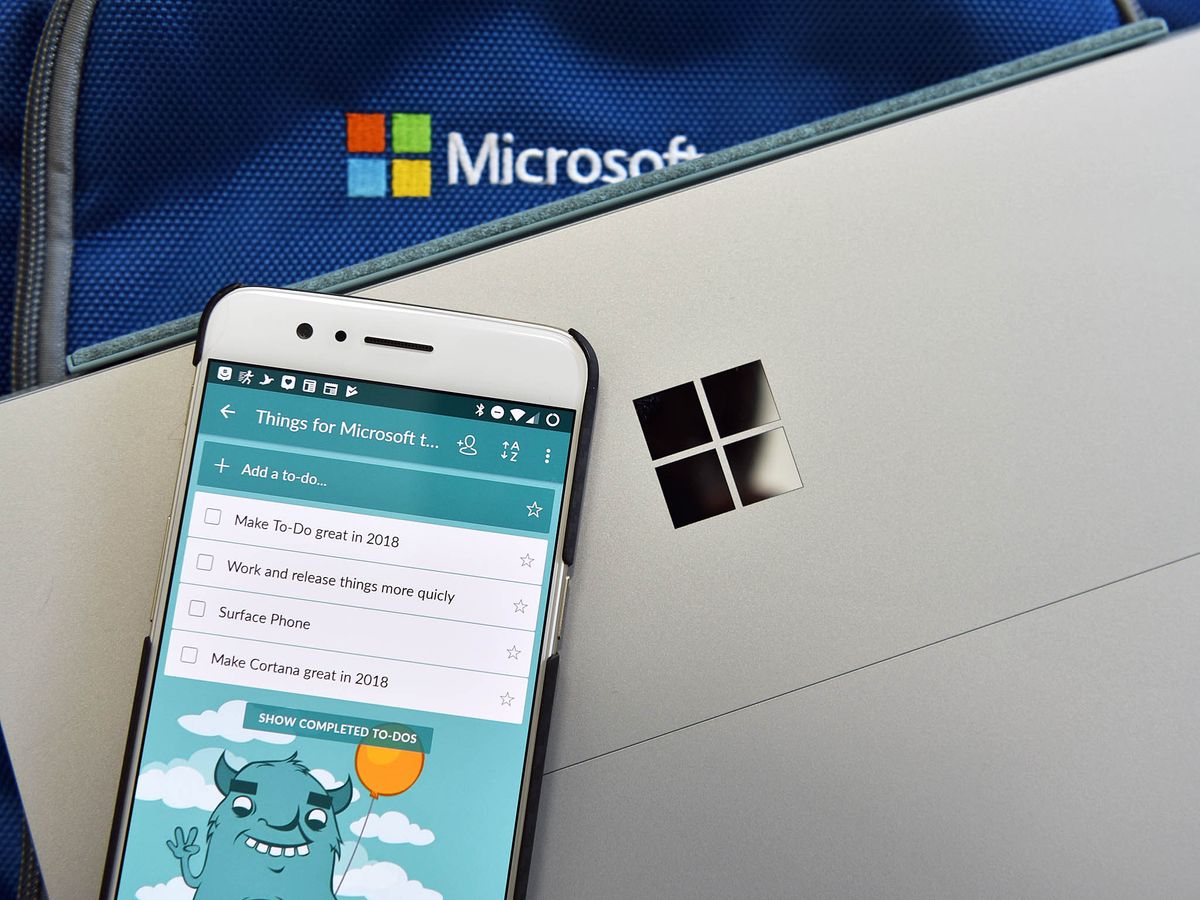
I've never been one for reminders, lists, notes, or really any tool that helps organizes my life. I'm just stubborn and they've never captured my interest.
Recently, I started using Wunderlist in another attempt to become more efficient. While Microsoft is building out To-Do – the Wunderlist replacement – at a glacial pace, Wunderlist is still much more useful today than the newer tool, especially when you use Cortana. This is why.
It all started with a grocery list ...

When your significant other insists on using a pen and paper to make a grocery list right next to her Surface Pro, you have to question how it all went wrong. Surely there must be a better way, especially since later, when you went to the store, you forget the grocery list at home.
Enter in Wunderlist with its coveted shared lists. On firing up the Wunderlist app for Windows 10 and Android, it becomes evident why it remains such a popular service. Creating a list and adding people from your contacts – like Outlook calendar invites – lets you easily collaborate and get live updates on changes.
In my household, we have a shared grocery list, with things for the house, and I'm also using it for work to keep track of ideas for stories. I'm even using the folders option at the gym where I can add new exercises and notes for new routines. The grocery list is shared, and when either of us buys something (removes) or adds something to the list a notification lets us know.
And support for iOS, Android, and Windows 10 makes it even more valuable.
Linking Cortana to Wunderlist and Invoke
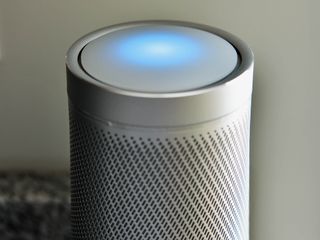
Cortana already has a built-in "lists" feature under its Notebook. However, users can add Wunderlist to Cortana via the connected apps feature. Once complete, the Cortana grocery list is the Wunderlist grocery list and vice versa.
Get the Windows Central Newsletter
All the latest news, reviews, and guides for Windows and Xbox diehards.
Using Cortana and Wunderlist together is a blast. While on my PC I can add things through Cortana and they appear in Wunderlist (including that shared grocery list).
Cortana lets you do text, but it's the voice part that's the most fun. Say "Hey, Cortana … add coffee to the grocery list," and it is done. While the ability to use "Hey Cortana" – the voice activated part of the digital assistant – is not new, leveraging the Harman Kardon Invoke speaker is (for those in the U.S., at least).
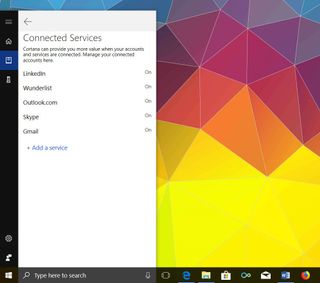
The Invoke speaker becomes much more useful now with Wunderlist linked. Barking out commands to add this or that to my various lists has been liberating. Having those lists shared with family members is even cooler as they all just update in the cloud to their devices.
This all raises an issue I have with Cortana. To get to your lists, you need to dig a bit into the menus, and it is not nearly as convenient to use compared to Wunderlist. It's also better in Windows 10 since you can pin frequently-accessed lists to Start for quick access.
Cortana also unfortunately lacks many of the features – including sharing – that Wunderlist brings.
What to do about To-Do
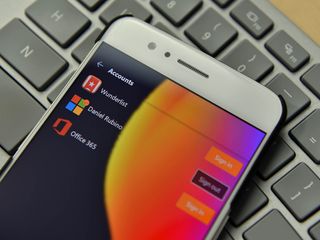
Microsoft bought the company behind Wunderlist in 2015. Next month, it will be one year since the Wunderlist team announced Microsoft To-Do app. Wunderlist is now in maintenance mode and will eventually be phased out when To-Do ramps up. From that announcement:
We have big plans for Microsoft To-Do. In the coming weeks and months, we'll bring you more features such as list sharing, apps for Mac, iPad, and Android Tablet, as well as more integrations with other Microsoft services.
To-Do is available on iOS, Android, and Windows 10. But if you are a dedicated Wunderlist fan (or a new convert like myself), Microsoft To-Do ultimately pales in comparison nearly a year after its release.
Those sought-after shared lists are the thing that makes Wunderlist. But they're nowhere to be seen in To-Do. Cortana or Windows Ink integration? Nope.
It is strange to see Cortana support – and even endorse – Wunderlist as an add-on but skip over To-Do. Even Microsoft's Launcher for Android still ties into Wunderlist as a login option, but it has nothing to do with To-Do.
I'm more than willing to cede development time to the Wunderlist team to get it right, but after a year, the feature set of Microsoft To-Do feels miles behind Wunderlist, with no signs of improving. It's not even entirely clear why To-Do needs to exist versus merely rebranding Wunderlist as a Microsoft product.
The lack of urgency and a clear roadmap to bringing feature parity to To-Do from Wunderlist is worrisome. When combined with the issues surrounding Cortana in general, it starts to look like Microsoft is, again, its own worst enemy.
A connected future is coming ... slowly
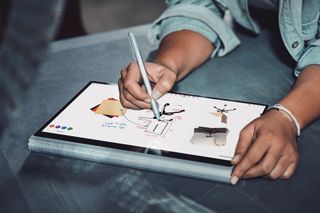
The good news is Wunderlist still works well. Combined with being available on all my devices and working with Cortana and the Harmon Kardon Invoke speaker, I have a chance to get more organized. Finally.
But the Wunderlist team needs to get going. Bringing things like support for hashtags or Microsoft Flow is excellent, but the core features of Wunderlist need to happen now. The To-Do team has reportedly flipped the switch on the development of Cortana and shared lists, but there is still no deadline for when those changes will happen.
I see a bright future for tools that let users collaborate within apps and services across devices. Microsoft is keen on the idea, with apps like Whiteboard, Teams, OneNote and Office. Toss in hardware options like Always Connected PCs, the new Surface Hub and the Surface Pro with LTE, and you begin to see a future where our devices, apps, and services all sync and talk to each other. We just need to remind Microsoft to complete its own tasks.

Daniel Rubino is the Editor-in-chief of Windows Central. He is also the head reviewer, podcast co-host, and analyst. He has been covering Microsoft since 2007 when this site was called WMExperts (and later Windows Phone Central). His interests include Windows, laptops, next-gen computing, and wearable tech. He has reviewed laptops for over 10 years and is particularly fond of 2-in-1 convertibles, Arm64 processors, new form factors, and thin-and-light PCs. Before all this tech stuff, he worked on a Ph.D. in linguistics, performed polysomnographs in NYC, and was a motion-picture operator for 17 years.